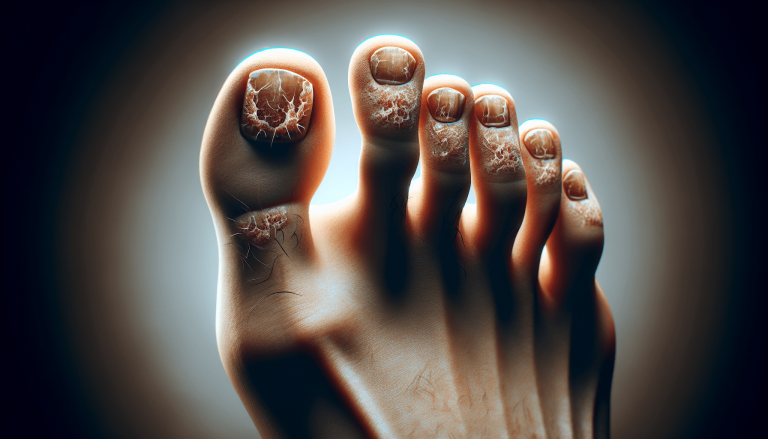What Is Tinnitus Caused By?
Tinnitus, a condition that affects millions of people worldwide, is characterized by a persistent ringing, buzzing, or humming sound in the ears. It can be incredibly bothersome and may even disrupt daily life. But what exactly causes tinnitus? While there isn’t a one-size-fits-all answer, there are several factors that can contribute to this perplexing condition. Whether it’s exposure to loud noises, age-related hearing loss, or an underlying medical condition, understanding the potential culprits behind tinnitus is the first step towards finding effective treatment and relief.
Overview of Tinnitus
Tinnitus refers to the perception of sound in the absence of any external stimulus. It can manifest as a ringing, buzzing, hissing, or humming sound that originates within the ears or head. Although it is not a disease itself, tinnitus can be a symptom of an underlying condition or an effect of certain lifestyle factors. Understanding the various causes of tinnitus is crucial in order to properly manage and alleviate the symptoms.
Definition of Tinnitus
Tinnitus is often described as a phantom noise that only the affected individual can hear. It can be continuous or intermittent, and its severity can range from being mildly irritating to severely disruptive. The perceived sound may vary in pitch and volume, and it can affect one or both ears. Tinnitus can have a significant impact on a person’s overall well-being, leading to difficulties in focusing, sleeping, or experiencing peace and quiet.
Prevalence of Tinnitus
Tinnitus is a widespread condition that affects millions of people around the world. According to the American Tinnitus Association, approximately 15% of the global population experience some form of tinnitus. In the United States alone, over 50 million people are estimated to be affected by this condition. The prevalence of tinnitus tends to increase with age, with older adults being more susceptible to developing the symptoms.

Types of Tinnitus
Tinnitus can be categorized into two main types: subjective and objective. Subjective tinnitus is the most common form, where only the person experiencing it can hear the perceived sound. It is often associated with damage to the auditory system, either within the ear or the nerves involved in hearing. Objective tinnitus, on the other hand, is rare and can be heard by both the affected individual and others. This type of tinnitus is typically caused by a physical abnormality, such as muscle spasms or blood vessel disorders.
Physical Causes
Tinnitus can be caused by various physical factors. Damage to the ear, either from exposure to loud noise or age-related hearing loss, is a common cause of tinnitus. Excessive accumulation of earwax can also lead to tinnitus symptoms. Head or neck injuries, temporomandibular joint disorder (TMJ), and otosclerosis (abnormal bone growth in the middle ear) are other physical conditions that can contribute to the development of tinnitus.
Medical Conditions
Certain medical conditions can give rise to tinnitus symptoms. Meniere’s disease, characterized by recurring episodes of vertigo, hearing loss, and tinnitus, is one such condition. Hypertension (high blood pressure), atherosclerosis (hardening of the arteries), thyroid problems, anemia, and acoustic neuroma (a noncancerous tumor on the nerve responsible for hearing) are also associated with tinnitus. Additionally, muscle spasms in the ear can result in tinnitus symptoms.

Medications and Substances
The use of certain medications and substances can trigger or worsen tinnitus. Certain antibiotics, particularly those belonging to the aminoglycoside class, are known to have ototoxic effects (toxic to the ear) and can cause tinnitus. Cancer medications, antidepressants (specifically, selective serotonin reuptake inhibitors or SSRIs), high doses of aspirin and nonsteroidal anti-inflammatory drugs (NSAIDs), quinine-based medications, as well as consumption of alcohol, caffeine, and nicotine, can all contribute to the development of tinnitus symptoms.
Psychological and Emotional Factors
Psychological and emotional factors can play a significant role in the experience of tinnitus. Stress and anxiety levels have been found to be closely linked to the perception of tinnitus symptoms. Depression, post-traumatic stress disorder (PTSD), sleep disturbances, noise-induced tinnitus, and emotional distress can all exacerbate or contribute to the severity of tinnitus. It is important to address these psychological factors in conjunction with treating the physical aspects of tinnitus for effective management.
Lifestyle and Environmental Factors
Certain lifestyle and environmental factors can increase the risk of developing tinnitus. Excessive exposure to loud noises, either from occupational or recreational activities, can damage the ears and result in tinnitus symptoms. Poor diet, alcohol and drug abuse, smoking, high levels of caffeine consumption, lack of sleep, and exposure to environmental toxins, such as certain chemicals or heavy metals, can also be contributing factors to the onset or worsening of tinnitus symptoms.
Vascular Disorders
Vascular disorders that affect blood flow can contribute to the development of tinnitus. High blood pressure, obstruction of blood flow, atherosclerosis, and inflammation of blood vessels are conditions that can disrupt the normal circulation of blood in the body, including the auditory system. This disruption can lead to changes in the way sound is processed and perceived, resulting in tinnitus symptoms.
Underlying Ear Conditions
Various underlying ear conditions can give rise to tinnitus symptoms. Eustachian tube dysfunction, which affects the pressure regulation in the middle ear, can cause tinnitus. Otitis media (middle ear infection), cholesteatoma (abnormal skin growth in the middle ear), perforated eardrum, ossicular chain discontinuity (disruption of the bones responsible for transmitting sound), and middle ear infections can all contribute to the development of tinnitus symptoms.
Jaw and Dental Problems
Problems related to the jaw and dental area can be associated with tinnitus. Temporomandibular joint disorder (TMJ), which affects the joint connecting the jaw to the skull, can cause tinnitus symptoms. Malocclusion (misalignment of the teeth) and bruxism (teeth grinding) are other common dental conditions associated with tinnitus.
Neurological Factors
Certain neurological factors can contribute to the development of tinnitus. Brain tumors, stroke, multiple sclerosis, neurodegenerative disorders, neural damage, and hormonal imbalances are all conditions that can affect the auditory system and lead to the perception of tinnitus symptoms.
In conclusion, tinnitus can stem from a wide range of causes, both physiological and environmental. Understanding these causes is crucial in order to properly diagnose and manage this condition. If you are experiencing tinnitus, it is advisable to seek medical attention to determine the underlying cause and explore appropriate treatment options.
Additional Resources

For a video presentation about the science, ingredients, testimonials regarding a product that can help relieve the incessant ringing in the ears, click here: https://bit.ly/New-Tinnitus-Treatment






